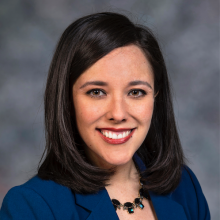Jeffrey Kosky
Professor of Religion, Washington and Lee University
Henry David Thoreau’s Recovery: An Ordinary Happiness and “The Phenomena of the Lake”
Friday, May 25, 12:00pm, Swift 403
Please join the Philosophy of Religions Workshop for a roundtable discussion with Jeffrey Kosky (Professor of Religion, Washington and Lee University). Professor Kosky works in the areas of phenomenology and religion; theories of modern disenchantment and the possibilities of re-enchantment; and traditions of mystical theology in Christian thought and culture. He is the author of Arts of Wonder: Enchanting Secularity (The University of Chicago Press, 2012), and Levinas and the Philosophy of Religion (Indiana University Press, 2001). He has also translated several books and articles by Jean-Luc Marion.
The Workshop on the Philosophy of Religions is committed to maintaining itself as a fully accessible and inclusive workshop. Please contact Workshop Coordinator Matthew Peterson (mjpeterson@uchicago.edu) in order to make any arrangements necessary to facilitate your participation in workshop events.




